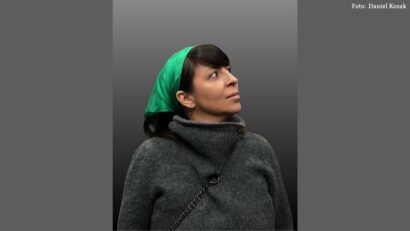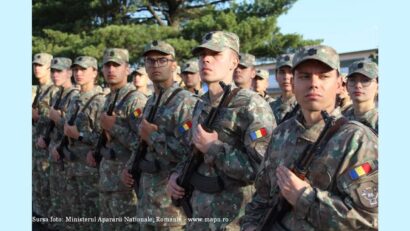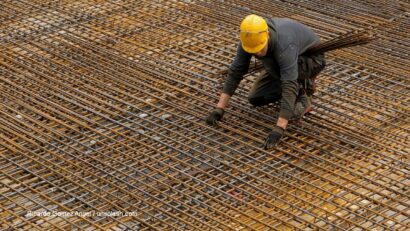Society Today
One World Romania is the only Festival of Documentary film and human rights in Romania

Iulia Hau, 16.04.2025, 14:00
In an increasingly polarized society in which algorithms are encouraging and nurturing the division of individuals in ideological spheres that do not intersect, One World Romania invites to dialogue and understanding.
One World Romania is the only human rights festival in Romania, which is fostering profound debates on subjects such as social inequities, migration and extremist movements. Over ten days, several Film Theatres such as the one at the Romanian Peasant’s Museum, Cinema Elvira Popescu and Cinema Union in Bucharest are screening over 50 documentary films. Most of these are to be followed by long debates involving film-makers, platforms, media, NGOs and active individuals from civil society.
And because the word ‘legionnaire’ was the most looked up word in the dexonline.ro dictionary last winter, the festival is thoroughly tackling the issue of fascism, as one of the most urgent topics of our time. A series of news bulletins from the period between 1940 and 1950 featuring Iron Guard commemorations and massacres of the past century was being screened and the public was invited to a dialogue with historians Adrian Cioflâncă and Florin Muller. So, the festival intends to shed light on what that political violent movement actually was and the role played by the cinematographic propaganda of that time.
The actions of intimidating and silencing journalists, activists and NGOs, a phenomenon also known as SLAPP, was also high on the agenda of One World Romania. SLAPP is an English acronym for Strategic Lawsuits for Public Participation, threats against democracy and freedom of expression, a phenomenon also known in Romania. Romanian journalists and civic activists went up the festival’s stage and talked about their brush with the aforementioned phenomenon.
Andreea Lăcătuș, One World Romania director, is speaking about the theme of this year’s edition of the festival starting from the cancellation of the Romanian elections in December last year because of external interferences and manipulation of the TikTok algorithms in favour of a candidate.
Andreea Lacatus: “This year’s theme is called “You hear me”. In autumn we usually propose the theme for the following edition, you know. But after what happened last winter with the election we realized that things that we thought of, or the way we thought the world would be, changed radically. So we wanted very much to be connected to present realities and we started a series of debates – while facing the stress and the turmoil of that winter time – we realized that it was very difficult to connect with each other. And that’s why we decided that the festival’s name be ‘You hear me’ – because of our efforts to connect with each other. And then we realized that turmoil was actually felt by everyone. So, we decided to put that thing on the table, so to say, and ask other people about how they live with the fact that many times they feel unheard, ignored or unseen.”
Asked about the challenges facing the team of such a niche festival, Andreea Lăcătuș explains that the documentary film based on human rights isn’t a media product that could be commercially exploited. And this makes the cooperation with companies, which could support the festival, difficult. Also it is difficult to cooperate with decision-makers because, as Lacatus says, very few people really understand this kind of cinematographic genre and its potential to bring changes into the world.
After an experience of 10 years in cultural and civic fields, Andreea Lăcătuș, believes there are not enough occasions of meeting and dialogue between people interested in human rights.
Andreea Lacatus:” From my viewpoint, after several years of doing community work, of going to places without access to culture, I realized a couple of things about this festival Actually, neither is this sphere culturally approached, you know. These people, who are genuinely interested, who share beliefs and human dignity and respect – they don’t have the right context to meet each other as well. They aren’t getting things done for these people either, at least concrete things. So, on one hand our communication is for these activists, interested artists, which implicitly leads to a new type of audience, you know. Being an event, which unfolds physically we have this advantage, of reaching out to cinema goers, which are more diverse, for instance, more conservative audience in certain cinema halls, different from our standard profile, so to say. Then the way in which we are reaching various spheres and places, is about our cooperation with universities, schools, we invite people from the streets; here we are like in a fair, at the Museum of the Romanian Peasant. And if the weather was fine we could have outdoor screenings, you know. “
Starting last year, the High-School Students Days have been a major component of the festival, dedicated to the Romanian teenagers and inter-generational dialogue. Although initially designed as a small-scale event, the High-School Students Days last year brought together no less than 1100 young people in eleven free workshops, six screenings and a concert. But perhaps one of the festival’s most important initiative are the meetings between these high-school students and seniors done jointly with daycare centers in Bucharest.
(bill)






























